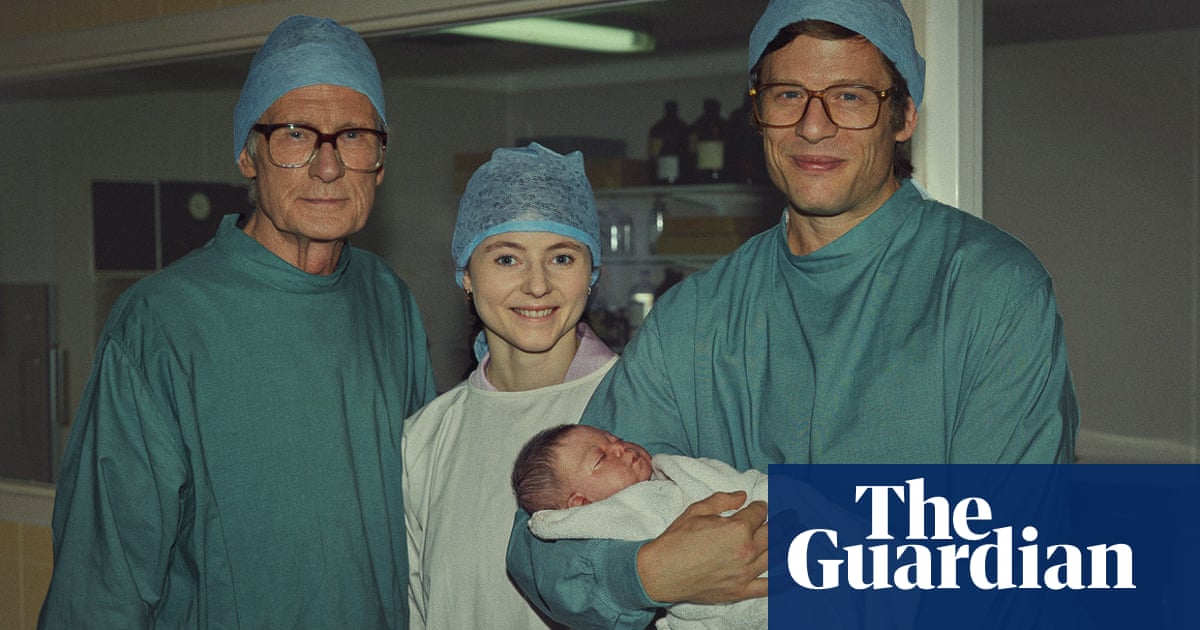Bill Nighy has never felt more bewildered. "It's just so weird, having children," he says. "The whole thing is like science fiction. Human beings make
Bill Nighy has never felt more bewildered. “It’s just so weird, having children,” he says. “The whole thing is like science fiction. Human beings make decisions and have ideas and choose their partner, and it’s all so reckless and marvellous. It’s such an extraordinary thing to attempt. Maybe it’s just my age, but I just think of all the energy involved in having and raising children. You know?
I hear him gliding down the street, phone in hand, apologizing profusely to a cafe door. “And then there’s this human being who turns out to be somebody quite independently of whoever might have been involved in their creation. They’re this completely other thing. And they’re also, in the case of my grandchildren, edible.”
Nighy is a highly covetable grandfather. He attended the Oscars two years ago with a stained Sylvanian bunny, which he was tasked with “rabbit-sitting” for his granddaughter. This year, he’s lent his voice to five children’s animations and is now playing a real-life gynaecologist who pioneered IVF.
“It’s a very obvious remark,” he says, “but the world is divided between people who’ve had children and people who haven’t. Not that it’s a criticism of either group, but nothing can quite prepare you for the moment when they hand you a human being and say, ‘This is yours, you are now their custodian.”
“And as soon as you take the weight of the baby, you’re like, ‘Oh, I see, it’s entirely about this now. It’s not about me.’ So it hopefully unplugs some of our unhelpful self-absorption. There’s something outside of yourself to concern yourself with. You go down the bill.” The birth of his daughter 40 years ago was, he concludes, “the most significant thing that has ever happened to me.”
Joy is an origin story for the procedure that enabled millions of people to become parents. It’s a movie about three good people – Dr. Patrick Steptoe, Dr. Robert Edwards, and lab technician Jean Purdy – trying to do a good thing, which everyone knows they managed. Yet it’s as gripping as a thriller. Because, explains writer Jack Thorne, it has the structure of a sports movie. The key players “were a genuine team and it cost them to be part of that team. It’s just their season ran from 1968 to 1978.”
1978 was the year the first IVF baby, Louise Brown, was born. In Joy, we don’t encounter her parents until the final reel; the film juggles primal emotions and immense restraint. One touchstone for its director, Ben Taylor, was First Man, the Neil Armstrong biopic starring Ryan Gosling. “Even the overblown trailer finishes with a countdown to liftoff,” he says. “Every second is interspersed with cuts of him and his family.” Yet the step for mankind managed in Joy is arguably more immense. “Going to the moon is one thing, but what they did is more important.”
They shot it in the shadow of Oppenheimer: another film, says Taylor, with “a lot of theory, a lot of lab work” – but a more obviously cinematic climax. Filming all the chat took ages, he says, “but then you’ve got James Norton with a pipette. And you can’t just bosh it off in 10 minutes. You want to worship it because it’s the magic of the film.”
So embryos are fertilized in ecstatic closeup. The Lark Ascending booms on the soundtrack. It’s as lush and lyrical as a conventional baby-making scene, just with rather less nudity. “It was a relief there were no sex scenes,” says McKenzie. “That it’s a film not about sex.”
The simplicity of the science surprised Nighy. “The idea of fertilizing an embryo outside of the body seemed unachievable. It’s such a profound development yet the actual mechanics of it are not that complicated.” “It’s incredibly binary,” agrees Taylor. “And it’s still very much based on what these three people were doing in a shack in Oldham 47 years ago.”
For Nighy, playing a grandparent is a respite from the weight of his own mortality. “I’m halfway down a very strong cup of coffee, which might persuade me into positions I have no right to hold, and I’m not kidding, I’m super-vulnerable to coffee, but I don’t see them as a representation of me but sort of in spite of me.”
Would he be the same person had he not had a child? “I’m quite astonished to be anybody’s father. It’s a relief. I like it. I like it rather better than being me.”
Conclusion:
Joy, a story about the pioneers of IVF, is a gripping origin story about three people who changed the course of human history. The film premiered at the London film festival and will be released in UK cinemas on November 15 and globally on Netflix on November 22.
FAQs:
- What is Joy about?
Joy is an origin story about the pioneers of IVF and the people who changed the course of human history. - Who are the main characters in the film?
Dr. Patrick Steptoe, Dr. Robert Edwards, and lab technician Jean Purdy are the main characters in the film. - When will Joy be released?
Joy will be released in UK cinemas on November 15 and globally on Netflix on November 22.

COMMENTS